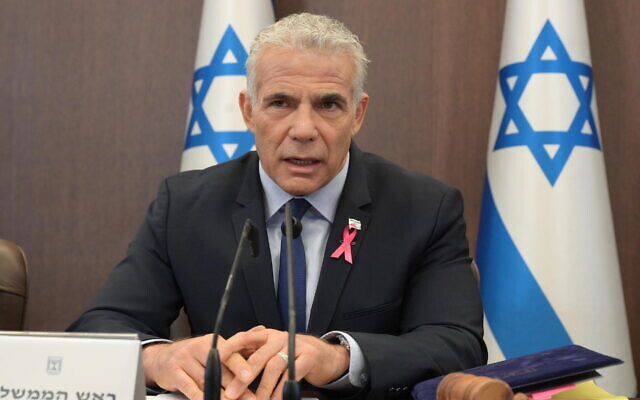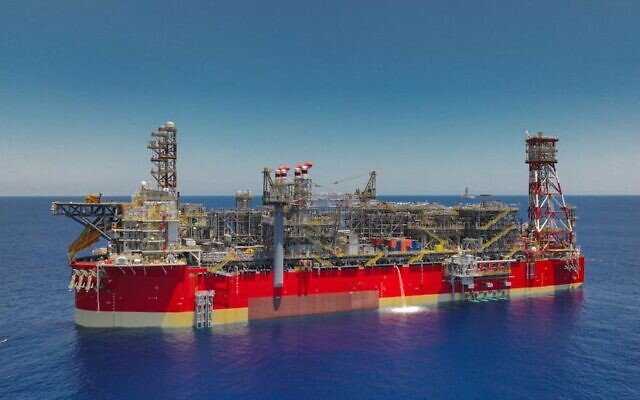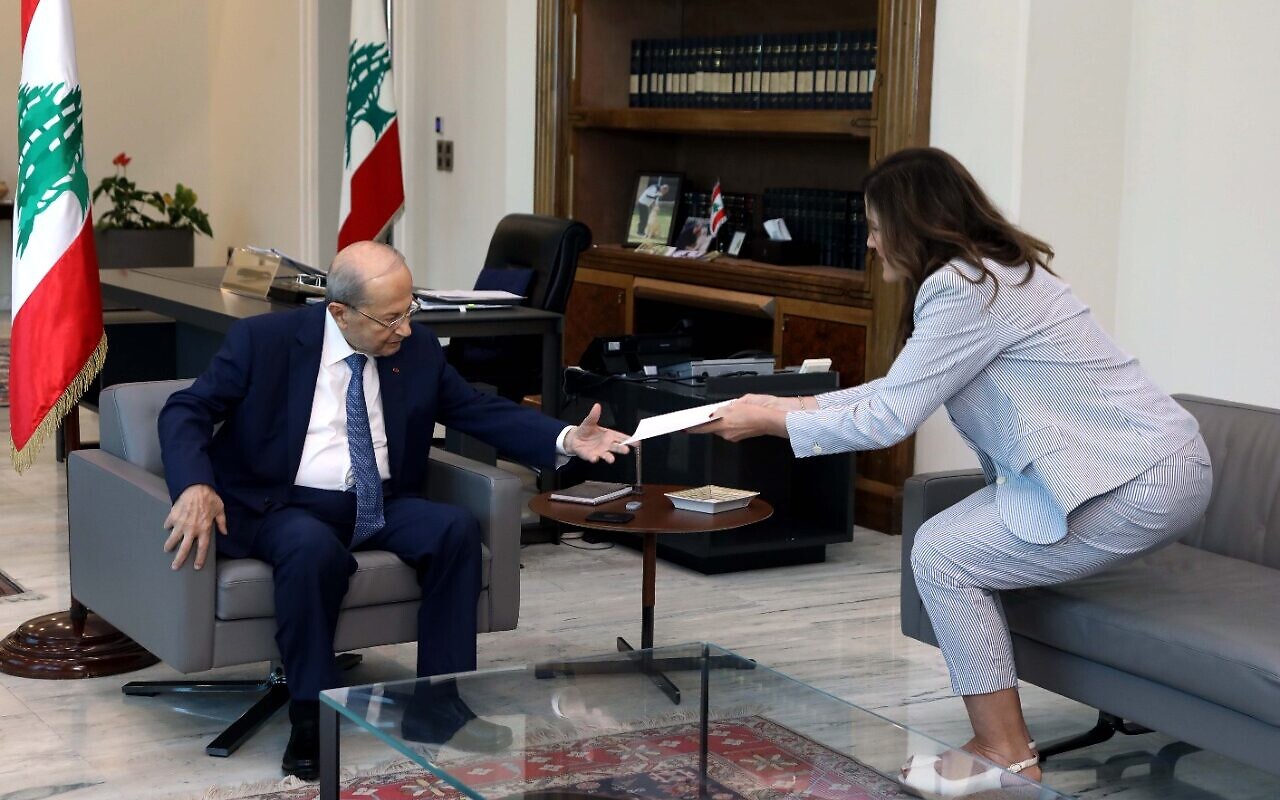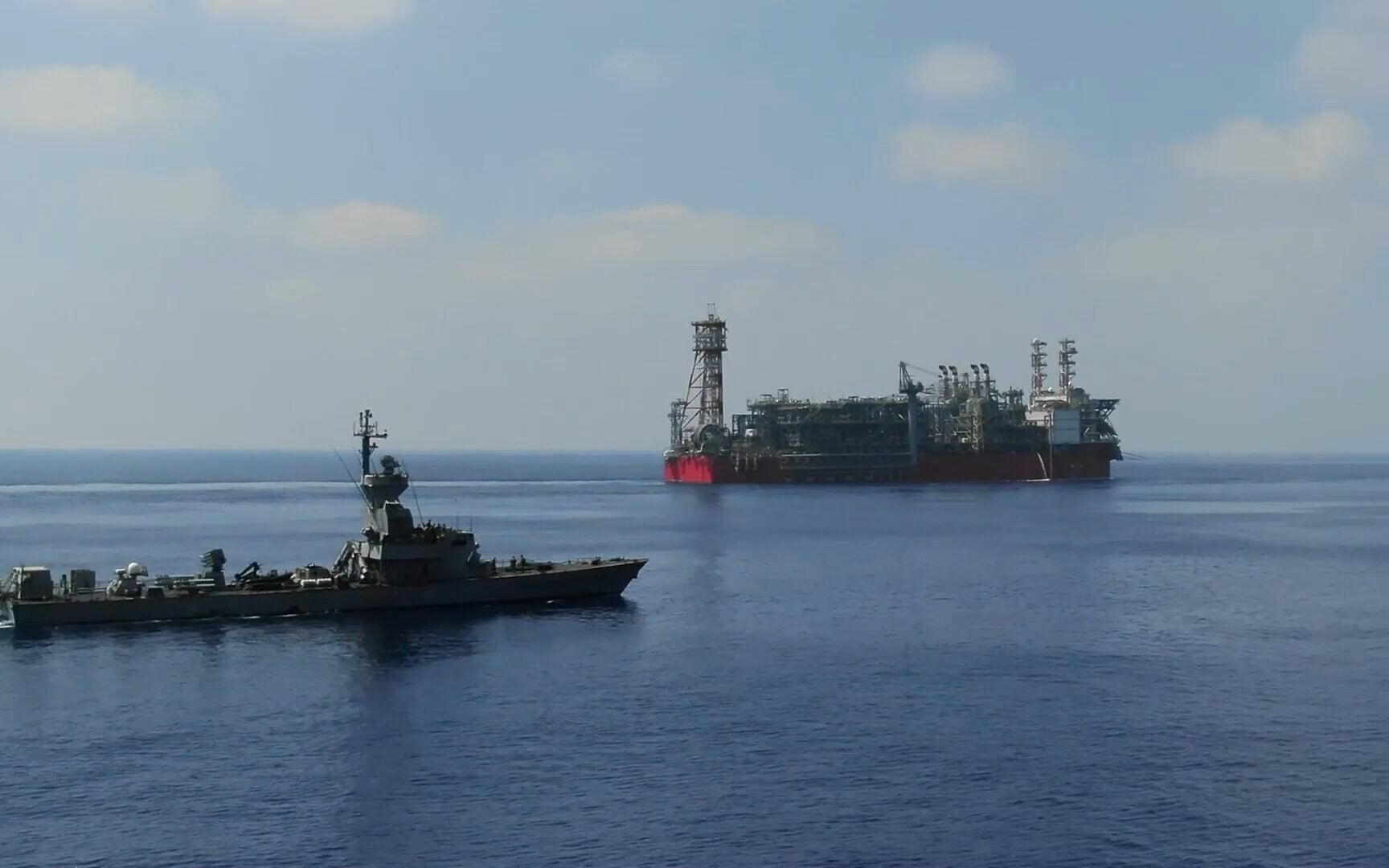Lapid confirms Jerusalem has received text of agreement; says allowing Lebanon to develop gas field will field will ‘weaken dependence on Iran, restrain Hezbollah’

Prime Minister Yair Lapid confirmed Sunday that Israel has received a long-negotiated US proposal to resolve its maritime border dispute with Lebanon, and said that the plan would preserve Israel’s regional interests.
The United States handed over the written plan to Lebanese President Michel Aoun on Saturday.
Addressing ministers at the start of the weekly cabinet meeting, Lapid said that the emerging agreement secures Israel’s interests, according to a statement from the Prime Minister’s Office.
“We are conducting discussions on the final details,” Lapid said and cautioned that it was still too early to see the agreement as completed.
“We do not oppose the development of an additional Lebanese gas field, from which we will of course receive the share we deserve,” Lapid said.
“Such a field will weaken Lebanon’s dependence on Iran, restrain Hezbollah and promote regional stability,” he said.

But he insisted that “as we demanded from the first day, the proposal fully preserves Israel’s diplomatic and security interests, as well as our economic interests.”
“For more than 10 years Israel has tried to reach this deal, which strengthens Israeli security and the Israeli economy,” Lapid said.
Aoun met with US ambassador to Lebanon Dorothy Shea on Saturday and received the written proposal from US mediator Amos Hochstein for the demarcation of the maritime border with Israel.
Lebanon state media said the government was working quickly to formulate a response to the plan.
The text of the proposal has not been released for publication.

The maritime dispute relates to some 860 square kilometers (330 square miles) of the Mediterranean Sea that include lucrative offshore gas fields.
The US-brokered talks on rights to the area, the subject of long-running but indirect negotiations between Jerusalem and Beirut and repeated threats from the Hezbollah terror group, have made progress in recent weeks.
The discussions began under the auspices of the previous government, led by then-prime minister Benjamin Netanyahu.
Netanyahu charged on Sunday that “Lapid has no mandate to hand over to an enemy state sovereign territories and sovereign assets that belong to all of us.”
Netanyahu also said Lapid had “surrendered to Hezbollah’s threats,” and that if he were to form a government after the November 1 elections, he would not be bound by the deal.
Lapid responded in a tweet addressing Netanyahu directly, saying, “For 10 years you have failed in trying to bring about this agreement, at least don’t harm Israel’s security interests and help Hezbollah with irresponsible messages.”
Defense Minister Benny Gantz also weighed in on Netanyahu’s comments, accusing the opposition leader of being guided by “irresponsible political considerations.”
“We will continue to look after the political, security, and economic interests of the State of Israel with responsibility and statesmanship,” he tweeted.
Tensions rose after earlier this year Israel moved a gas exploration ship to the disputed Karish gas field and recently said it will begin extracting from the site. Last month Hezbollah chief Hassan Nasrallah threatened that his Iran-backed terror organization’s missiles were “locked on” to Karish.

Yet in televised remarks Saturday, Nasrallah said the US draft deal opens up “new and promising horizons for the people of Lebanon by rescuing the country from the crisis it has fallen into.”
According to a Channel 12 report, under the emerging deal the location of the proposed border will be a compromise between the two sides. The report said that Lebanon will be able to drill for gas five kilometers north of Israel’s Karish gas rig.
An unnamed security official told the network that Israel’s security interests are guaranteed by the draft proposal.
The Saturday television report followed talks Lapid held on preparations to produce gas from the Karish field, amid Hezbollah threats to attack Israel if it begins drilling there before a maritime border deal is reached.
Lebanon claims that the Karish gas field is in disputed territory, while Israel says it lies within its internationally recognized economic waters.
Last month, Lapid’s office vowed Israel would go ahead and extract gas from Karish with or without a deal on the maritime border with Lebanon.
As reported by The Times of Israel
